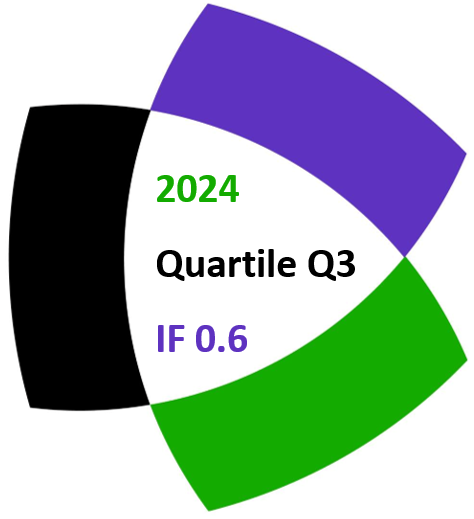J. Leyendekkers and A. Shannon
Notes on Number Theory and Discrete Mathematics, ISSN 1310–5132
Volume 6, 2000, Number 4, Pages 113–117
Full paper (PDF, 175 Kb)
Details
Authors and affiliations
J. Leyendekkers
The University of Sydney, 2006, Australia
A. Shannon
Warrane College, The University of New South Wales, 1465, &KvB Institute of Technology, North Sydney, 2060, Australia
Abstract
The Cardano cubic, ![]() , has one real zero and a complex conjugate pair. The real zero is given by
, has one real zero and a complex conjugate pair. The real zero is given by ![]() or
or ![]() , in which
, in which ![]() are important parameters that feature in the roots of all Cardano cubics. They are functions of the coefficients of the complex conjugate pairs. We find that
are important parameters that feature in the roots of all Cardano cubics. They are functions of the coefficients of the complex conjugate pairs. We find that
![]()
![]()
with ![]() and 11° <
and 11° < ![]() < 60° for real zero. Furthermore, for
< 60° for real zero. Furthermore, for ![]() integer, the range of
integer, the range of ![]() is reduced to 52° <
is reduced to 52° < ![]() < 60°, where the functional surfaces suggest the reason the integer
< 60°, where the functional surfaces suggest the reason the integer ![]() would only be compatible with an irrational value of
would only be compatible with an irrational value of ![]() . This is verified algebraically.
. This is verified algebraically.
AMS Classification
- 11C08
- 11D41
References
- Griffiths, H.B. and Hirst, A.E. 1994. Cubic Equations, or Where Did the Examination Question Come From? American Mathematical Monthly, 101.2: 151-161.
- Leyendekkers, J.V. and Shannon, A.G. The Cardano Family of Equations. Notes on Number Theory and Discrete Mathematics, submitted.
- Turnbull, H.W. 1957. Theory of Equations. Fifth Edition. Edinburgh: Oliver and Boyd.
Related papers
Cite this paper
Leyendekkers, J. & Shannon, A. (2000). Analysis of the roots of some Cardano cubes. Notes on Number Theory and Discrete Mathematics, 6(4), 113-117.


